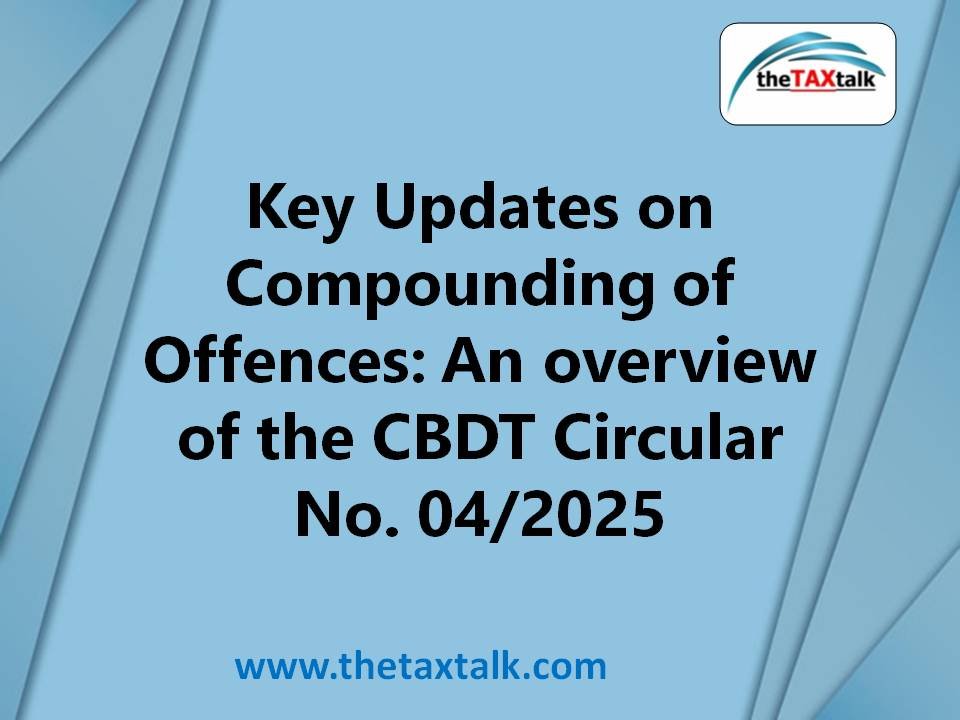![]()
Key Updates on Compounding of Offences: An overview of the CBDT Circular No. 04/2025
The Central Board of Direct Taxes (CBDT) has issued FAQs on the revised guidelines for Compounding of Offences under the Income Tax Act, 1961, effective from October 17th, 2024. These guidelines supersede all previous ones and apply to both pending and new applications.
Let us know about the Major Changes & Simplifications.
All offences now compoundable. There are no restrictions on specific offences.
There is no limit on the number of times an application can be filed.
Fresh applications allowed if defects in earlier applications are corrected.
No time limit for filing an application (earlier 36 months).
Compounding now possible for Sections 275A & 276B offences (previously not allowed).
Let us know about the application Process:
Where to Apply?
Submit to the jurisdictional Pr. CCIT / CCIT / Pr. DGIT / DGIT.
Fees & Documentation
Application must be filed in prescribed format (Annexure-1) on a ₹100 stamp paper.
Fee: ₹25,000 for a single application; ₹50,000 for a consolidated application.
Compounding charges vary based on frequency and type of offence.
Key Conditions for Eligibility:
All pending tax, interest & penalties must be paid before applying.
Appeals & writ petitions related to the offence must be withdrawn.
Higher approval needed for serious offences (e.g., imprisonment >2 years, anti-national cases).
Who Decides?
The Pr. CCIT / CCIT / DGIT will process most applications.
Complex cases (convictions, money laundering) need CBDT Chairman’s approval.
Why It Matters?
Easier & faster resolution of tax offences.
Encourages voluntary compliance & reduces litigation.
Greater clarity for taxpayers & professionals.
If you have a pending or rejected compounding case, you may reapply under the revised guidelines.
The copy of the guidelines is as under:


